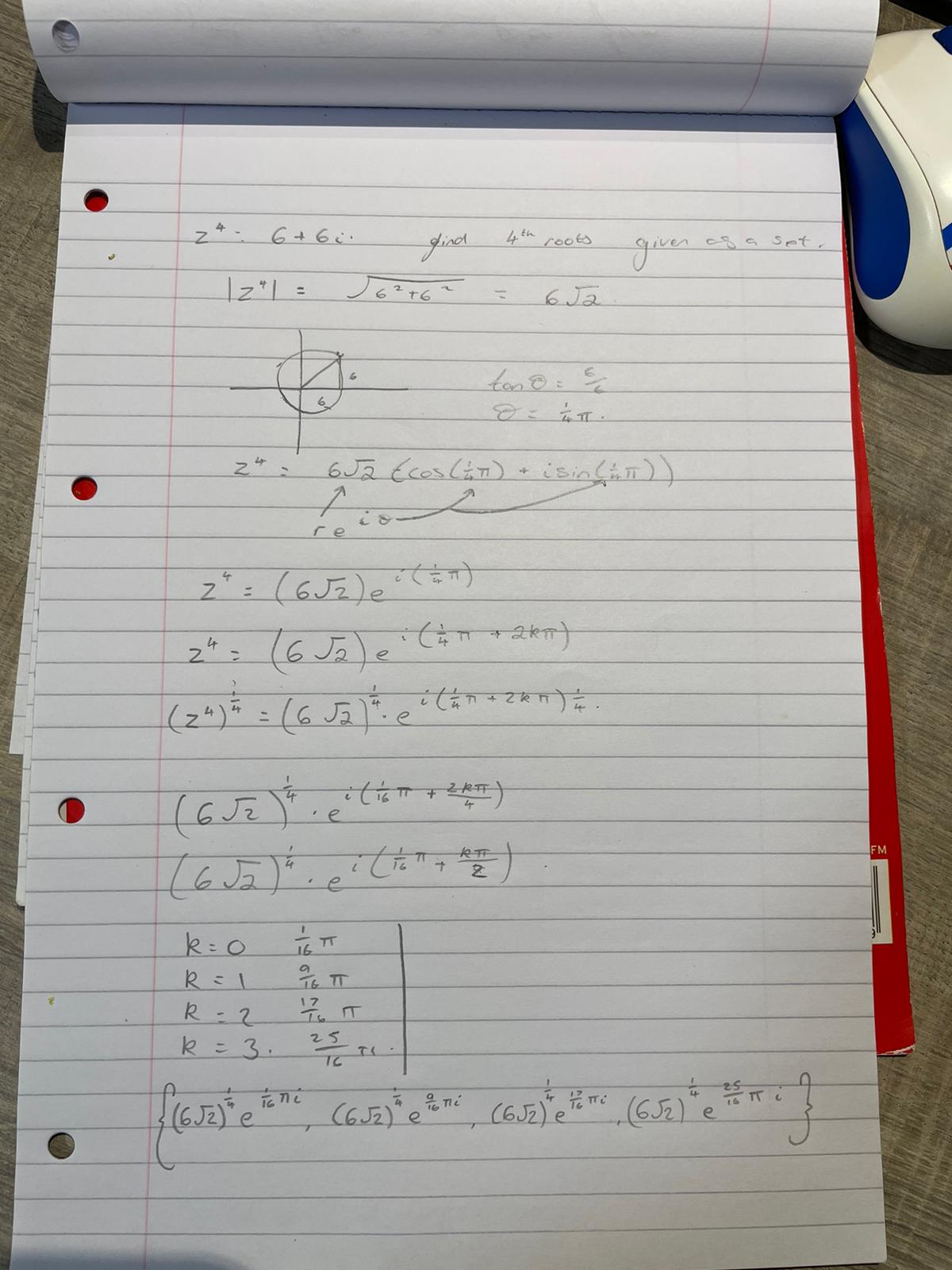Complex Numbers
1/7
There's no tags or description
Looks like no tags are added yet.
Name | Mastery | Learn | Test | Matching | Spaced |
|---|
No study sessions yet.
8 Terms
z1 = r1(cos(θ) + i sin(θ)) and z2 = r2(cos(φ) + i sin(φ)).
What is the term for z1z2 ?
z1z2 = r1r2(cos(θ + φ) + i sin(θ + φ)).
That is, the argument of z1z2 is arg(z1z2) = θ + φ and the modulus is |z1z2| = r1r2.
What are the positive and negative power rules for complex numbers in polar form?
z^n = r^n (cos(nθ) + i sin(nθ))
z ^−n = (r ^ −n) (cos(nθ) − i sin(nθ))
Using the principle arguement what can you add a multiple of to the arguement which will not change the value of the polar form?
2k(pi)
Say we have z^n how many solutions would be have?
n solutions
To find the nth roots of a value in polar form where z= r^(1/n) (cos(%)+isin(%)) what does % equal to find the n distinct roots?
%= (x+2k(pi))/n
What is the “Shorthand” version of polar form?
r(e^iθ)
How would you apply de moivres theorem to z1 = r1(e^iθ) and z2 = r2(e^iφ),
z1z2 = (r1r2)(e^i(θ+φ))
Find the 4th roots of 6 + 6i in short hand terms.
